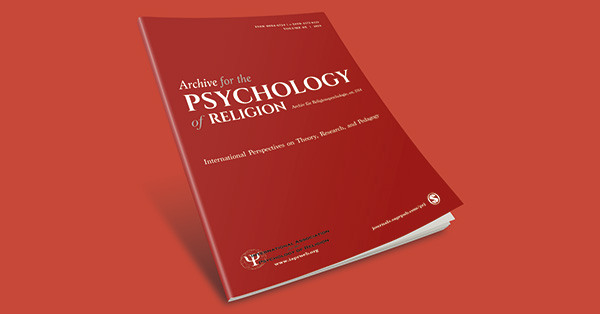
At CMAC, our research focuses on the mind-culture nexus. A significant part of that research involves studying religion and its role within that nexus, but there are many ways to study religion. What does it mean to engage in the scientific study of religion?
At most religious studies departments, researchers translate, interpret, and explain religious texts, which range from some of the earliest known human writings to contemporary social media posts. Other researchers do qualitative research, interviewing individuals and groups from perspectives grounded in anthropology, engaging with religious forms of meaning and values as they impact people’s lives. Still others, in disciplines like philosophy of religion and theology, deal with intellectual frameworks based in religious traditions, often offering their own arguments about what is true or false within religious belief systems.
The scientific study of religion refers to a different set of questions and methods that try to understand religion from quantitative, cognitive, and evolutionary perspectives. Right away, it is important to clarify that the scientific study of religion always needs to be done with awareness of other approaches to studying religion. Without the aid of humanistic and qualitative approaches, the scientific study of religion will misunderstand things that could be more accurately understood.
At the same time, humanistic and qualitative research on religion can benefit from the scientific study of religion, which often provides broader perspectives on the particularities of religious texts, people, and groups. Because of the commonalities that mark us all as human, there are some generalizations that we can make about the parts of human life that have been called “religious.” So what are the broader perspectives that the scientific study of religion can provide?
One line of scientific research on religion is demographic and statistical. Researchers measure past and present aspects of religion including religious behavior and membership in religious groups. They often try to identify trends in this data. Others, including at CMAC, have used social simulation modeling to project scenarios for future religious change.
Another type of scientific study of religion engages with neuroscientific and psychological research. Much of this work falls into the subfield of cognitive science of religion (CSR). By studying the human brain and human behavior, researchers can draw connections between how the brain functions, even in areas that might not be thought of as “religious,” and the parts of human behavior that are seen as religious.
This kind of research is also often linked to evolutionary theories about religion. In the 1990s and 2000s, theorists made wide-ranging claims about the evolutionary roots of religious belief and practices. More recently, researchers have developed increasingly sophisticated techniques to investigate these claims.
Researchers who study religion from cognitive and evolutionary perspectives are increasingly aware of the shortcomings of previous attempts, such as naive views that saw the mind as modular and work that relied on culturally homogeneous research subjects. Newer approaches have engaged in more careful and nuanced claims about religious behavior that are often grounded in cross-cultural research. Current researchers have critiqued flawed methodologies and have engaged in work that, while often more difficult and costly, is increasingly rigorous.
Much of this work has been highlighted in CMAC’s own journal Religion, Brain, & Behavior (RBB). RBB has established itself as a leading journal for work in the scientific study of religion, and it is now one of the most-cited academic journals on religion overall.
Why does the scientific study of religion matter? For policymakers, it can be crucial to understand the nature and future status of religion as part of human societies. The scientific study of religion can provide information that can aid governments as they promote well-being among their citizens.
For researchers working in other areas of the study of religion, the scientific study of religion can be a valuable partner. For instance, researchers using humanistic methods to study religious texts can notice patterns that cohere with the findings of qualitative research that used big data approaches to study a wide range of texts. This can helpfully inform the study of particular texts and traditions, which should also be understood in their own unique social and historical contexts.
At the same time, philosophers of religion and theologians who try to make normative claims about religious truth claims should pay attention to scientific perspectives on religion. Those scientific perspectives can help them to understand the roots of religious ideas in the behavior and practices of human minds and groups. Without those kinds of understanding, attempts to deal with religious thought will be limited.
The scientific study of religion is a fallible and still-developing set of approaches to research on human religious life. It provides tools and findings that can enrich and inform both practical aims and academic knowledge. Both policymakers and researchers who use other approaches would do well to be aware of contributions from the scientific study of religion.

